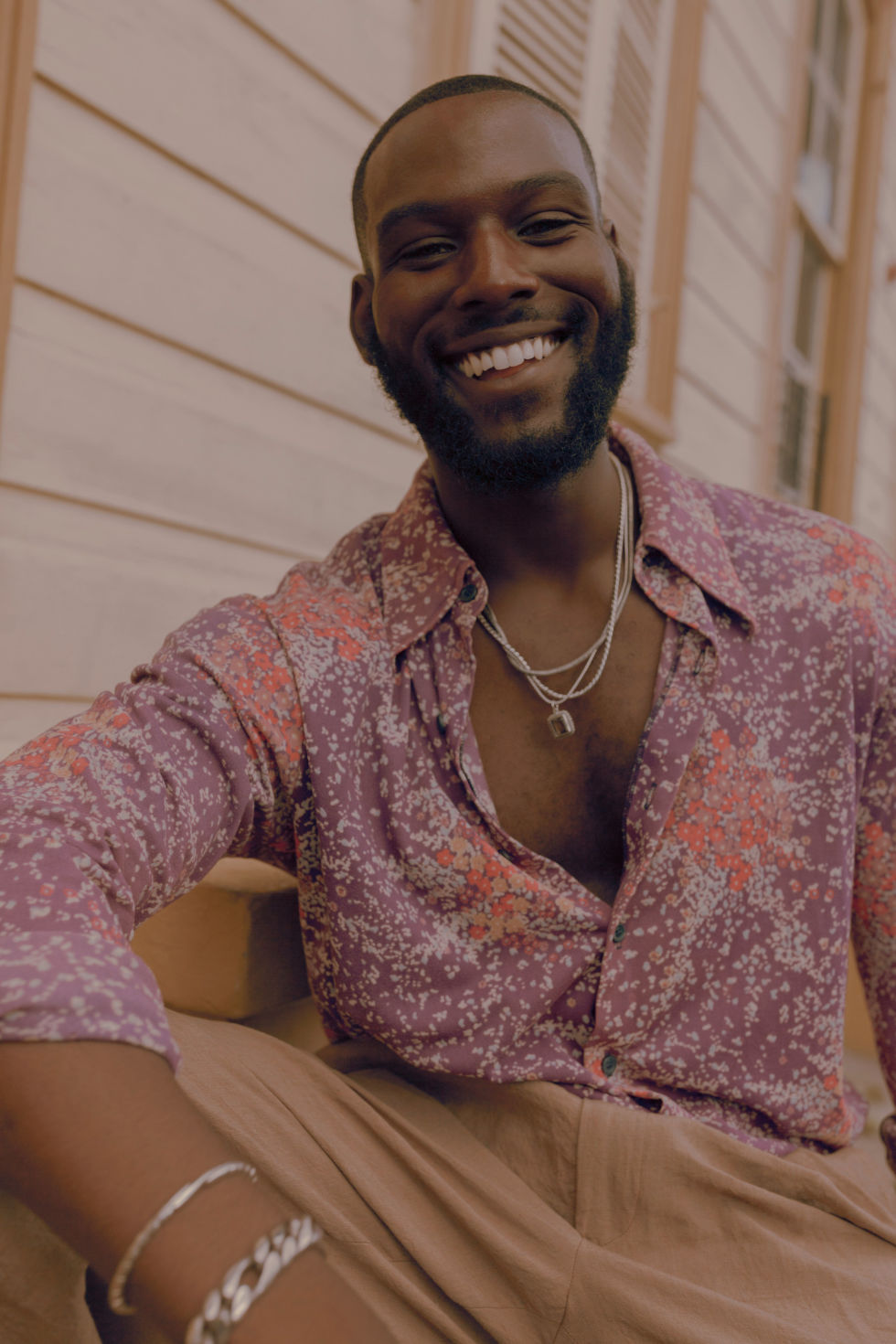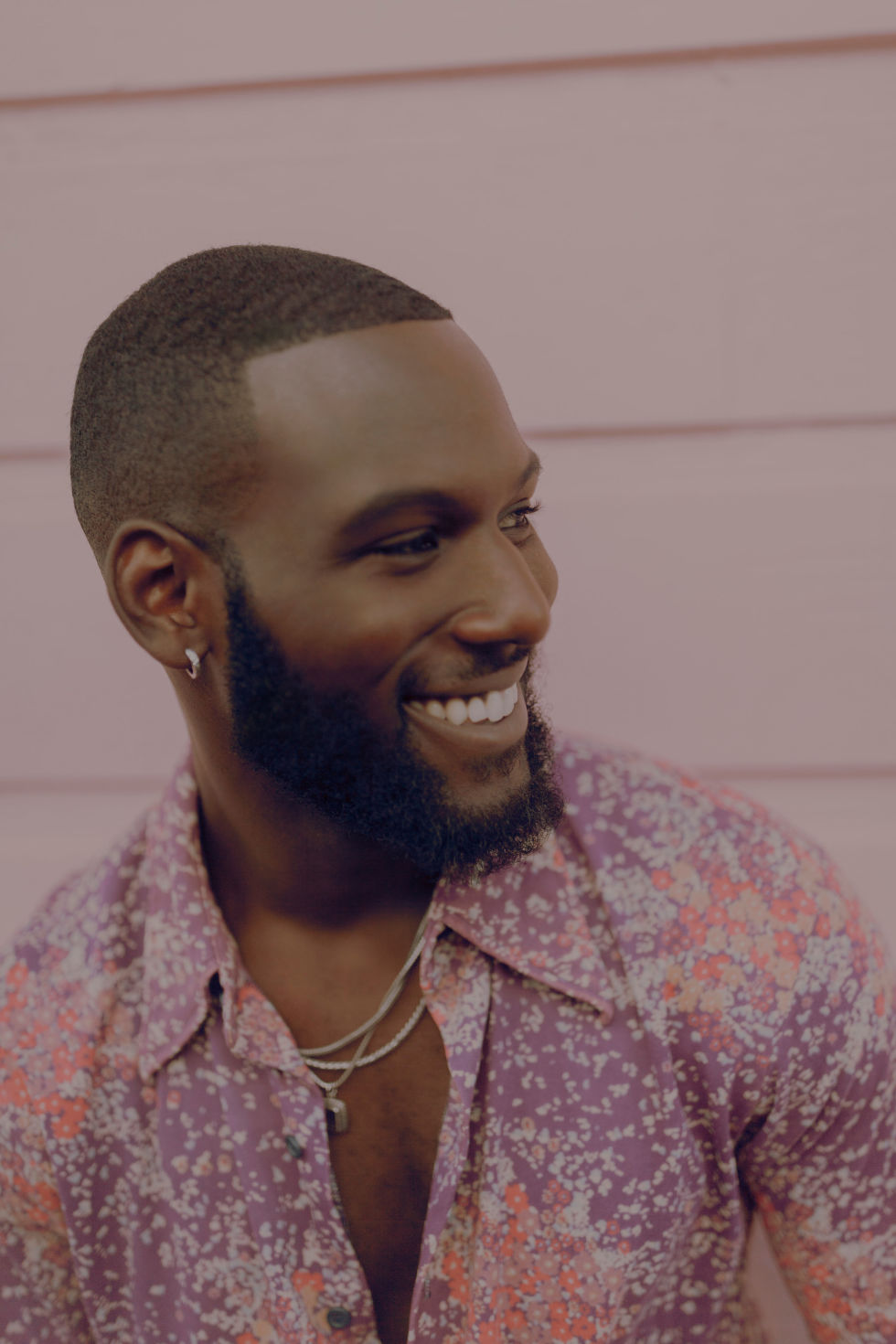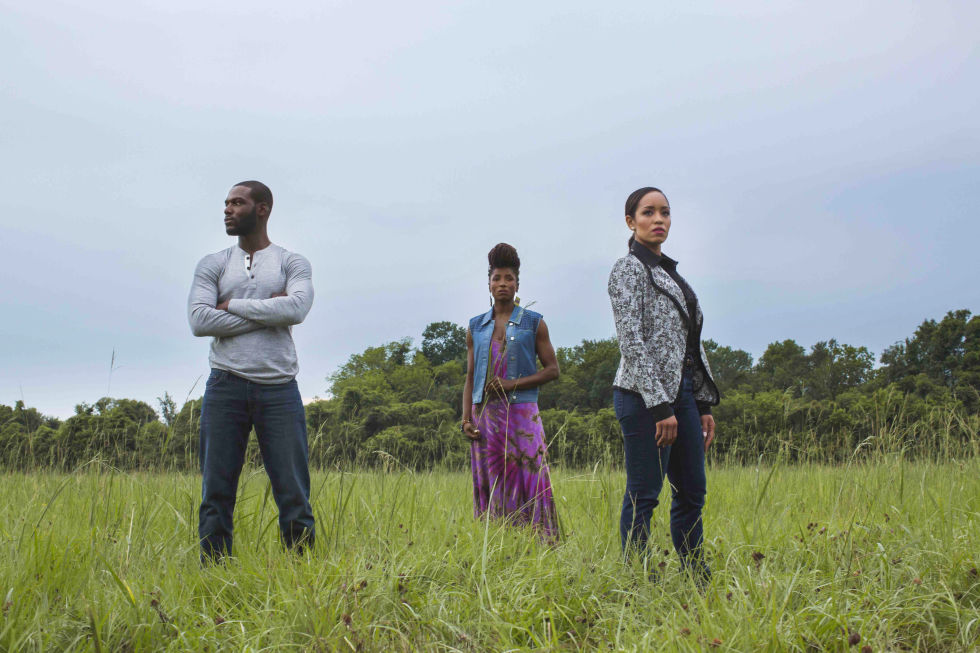Oprah, Ava, his co-stars, his mother: The ‘Queen Sugar’ actor is grateful for the Black women in his life.
Kofi Siriboe has spent a lot of time thinking about women. He thinks a lot about race. And, ultimately, he thinks a lot about Black women—the things that make us powerful and the things that have tried to confine us. Working closely with some of entertainment’s most influential black women—as the serious Ralph Angel Bordelon in the OWN network’s Queen Sugar and Jada Pinkett Smith’s love interest Malik in the upcoming film Girls Trip—has only reinforced his deep gratitude for and fierce allegiance to us.
The 23-year-old actor’s voice rises powerfully over the sound of New Orleans’ French Quarter, its drunken revelers and noisy cars, as he lambasts the sexual double standards men impose on women and the hyper-masculinity that makes them do it. Soon, for a few moments, we are lost. I tell him that I don’t mind having to wander around my favorite city in the world. “I love this city,” he says, taking his time with these words, his voice even lower and deeper than before.
He personifies New Orleans, in which both the dramatic Queen Sugar and the rambunctious buddy-comedy Girls Trip are based, as a woman. “There’s a gentle spirit about her,” he says later on the roof of his apartment, which overlooks Canal Street. “There’s this grounded, rooted feeling you get from being here. When I leave Los Angeles and come to New Orleans, my feet literally feel like they’re sinking into the ground. That’s how women make me feel.”
In particular, Black women like Ava DuVernay and Oprah Winfrey, Queen Sugar‘s executive producers, have always made him feel safe and stable. Before them, there were the aunts and mothers of friends that reassured a young and then overweight Siriboe about his worth. There was his own mother, Koshie, whose parents didn’t show her the same immense affection she shows him and his two brothers.
“[My mom]…didn’t have the most loving parents in the world,” he says, shying away from elaborating further. “For her to not have that, to be able to learn from the mistakes that her parents made, and to give love to her kids tenfold—I think that’s an example of what all Black women represent. You know, the world kind of shuns women in general, and if you’re a Black woman, I’m sure you feel that ten times more.”
“THAT’S ACCEPTANCE THAT THE WORLD DOESN’T OFTEN GIVE A BLACK MAN. WE’RE TOLD TO KNOW. WE’RE SUPPOSED TO BE MACHO.”
Data agrees with him. A recent report compiled by the Institute for Women’s Policy Research and released by the National Domestic Workers Alliance has found that despite our significant political participation, educational advancement, and entrepreneurial initiative, Black women in the United States are underpaid, underemployed, and overrepresented among the ill, the abused, and the incarcerated.
“So for a Black woman to feel that, and still find love within herself to give to her children, I feel like that’s just a testament to how Black women are in this world,” Siriboe continues. “They’re so resilient.”
He realizes the incredible pressure to exert superhuman emotional strength that Black women face, and is grateful to DuVernay, Winfrey, and Girls Trip co-stars like Jada Pinkett Smith and Queen Latifah for not placing that same pressure on him. In different ways, both his roles are taxing. As Ralph Angel, he is a young and complex formerly incarcerated father, fighting for his family’s farm and trust. As Malik, he plays a frat boy vying for the affection of an older woman—in real life, Pinkett Smith is 22 years older than Siriboe. While he says working with seasoned performers as a young actor can be “overwhelming,” he knows he can lay his uncertainties and insecurities at their feet and leave feeling motivated, but not forced, to overcome them.
“To me, that’s acceptance that the world doesn’t often give a Black man. We’re told to know. We’re supposed to be macho, we’re supposed to be confident,” says Siriboe.
But the women Siriboe has been surrounded by in his career are famous for changing perceptions. Queen Latifah’s groundbreaking feminist rap anthems commanded respect for women in hip-hop. For over 20 years, Winfrey took us inside the lives of an array of Americans we thought we understood, redefining what wealth and success looks like along the way. And with productions like the mass incarceration documentary 13th and Queen Sugar, DuVernay has helped a new generation of viewers understand Black families and the forces that try to tear them apart.
Siriboe is grateful to DuVernay, and “to the divine” for calling him to New Orleans a little over a year ago to make art that shifts narratives, and to do it alongside remarkable Black women.
They’re appreciative of him, too. Dawn-Lyen Gardner stars in Queen Sugar as Charley Bordelon West, the savvy and successful older sister to Siriboe’s Ralph Angel. In an email, she wrote that she and her co-star “really are like family. We laugh a lot and share similar views on art and social justice. I think from the very beginning, we saw and felt a kind of kindred artist in each other—we both love the intimacy of the work, love the journey of creating something that speaks to the heart and to our society. […] I think Kofi is a lesson in owning who and where you are. That’s certainly something I admire deeply about him.”
Ever conscious of what’s happening around him, this past Easter, Siriboe organized a dinner for upwards of 250 homeless New Orleanians under the Pontchartrain Expressway, a known encampment. He enlisted Queen Sugar caterers, actors, producers, and directors as volunteers. Homelessness among women in New Orleans increased 12 percent between 2011 and 2014, according to a Tulane University report on the status of women in the city—which makes it a feminist issue. “I imagine a world where men deliberately, specifically, and unapologetically create a space for women to be all that they naturally are, not all that we want them to be,” he says.
As Gardner pointed out, Siriboe is deeply interested in how media can be activism, too. The actor is looking to get behind the camera—shooting, directing, writing, producing—and collaborate with women to proliferate diverse images of us.
“I IMAGINE A WORLD WHERE MEN DELIBERATELY, SPECIFICALLY, AND UNAPOLOGETICALLY CREATE A SPACE FOR WOMEN TO BE ALL THAT THEY NATURALLY ARE”
The week before our interview, Siriboe was deep into press events in anticipation of Queen Sugar‘s second season, which will premiere in two parts on June 20 and 21 on OWN. He’s garnered a bit of a reputation for being a Black woman stan, and was recently confronted by a Black man who didn’t seem to share his vision.
“This dude at press this week was like, ‘So you don’t feel like there should be a King Sugar?'” Siriboe explains, mimicking the man’s displeasure with the women-heavy show. (Not only does powerhouse actress Rutina Wesley star in Queen Sugar as Nova, Charley and Ralph Angel’s justice-oriented sister—making two out of the three leads women—all of the show’s directors are women, as well.)
“I was like, ‘Nah!'” exclaims Siriboe, with a little bit of laughter and a lot of disbelief at what he had heard. “I said, ‘Listen, Black people in general have it terrible, but between Black men and women? Who’s been more deprived? Who’s been more oppressed?'”
“I love Black women, and I shouldn’t have to tiptoe around that fact,” says Siriboe. “That’s not to exclude anybody—I’m all about inclusion—but there is a lot of exclusion that happens naturally, systematically, and institutionally, to black women.” I smile and nod slowly, impressed. He shrugs, as if he had not said anything particularly impressive at all. In a way, he’s right: This kind of acknowledgment shouldn’t be considered outstanding. It’s just the way it is. He turns his head to look out at the New Orleans skyline—at the city that reminds him of the Black women he loves.
Article by: Mankaprr Conteh



